Autism and Hypoventilation
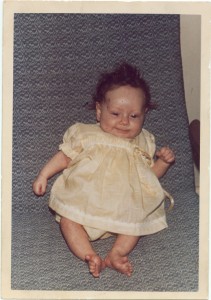 I was born in 1963 to an alcoholic mother who became sectioned under the mental health act when I was 3. I was born with Ehlers Danlos Syndrome (EDS) which is a collagen disorder thought associated with high functioning autism. Collagen plays a part in immune regulation and brain connectivity. I was immune deficient since 6 months old and had IgE allergies to wheat and legumes which would have been present since infancy. Then a lot happened when I was two and a half.
I was born in 1963 to an alcoholic mother who became sectioned under the mental health act when I was 3. I was born with Ehlers Danlos Syndrome (EDS) which is a collagen disorder thought associated with high functioning autism. Collagen plays a part in immune regulation and brain connectivity. I was immune deficient since 6 months old and had IgE allergies to wheat and legumes which would have been present since infancy. Then a lot happened when I was two and a half.
At the age of 2 and a half I ceased being in a day program for ‘at risk’ children and was now left with my alcoholic mother full time. I got measles. I was being suffocated by my abuser at night (I have clear memory of this abuse which happened at least 5 times or more and took to sleeping under the bed). I was regularly given baby bottles with gin and my mother’s Valium to keep me sleeping (reported by two aunts). I had my first episode of turning blueish (reported by my father). Then I was diagnosed at St Elmo’s Hospital in Moreland in a 3 day inpatient hospital assessment with autism (in those days deemed Childhood Psychosis). In the next six months, by the age of 3 I had twice been rescued from the bottom of swimming pools where I’d jumped in and sat on the bottom making no effort to fight to breathe.
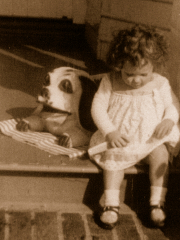 The first time I drowned I was rescued by two old ladies at the City Baths. I can remember them, their swimming caps, and my disturbance at being handled by people I didn’t know. The second time was a motel swimming pool. My older brother had jumped in and pulled me up from the bottom where I was sitting.
The first time I drowned I was rescued by two old ladies at the City Baths. I can remember them, their swimming caps, and my disturbance at being handled by people I didn’t know. The second time was a motel swimming pool. My older brother had jumped in and pulled me up from the bottom where I was sitting.
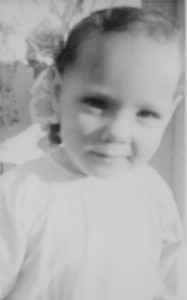 In early childhood I’m told by an aunt that I was kept confined to my room whilst my older brother could go outside (where we had a pool) and by another aunt that when in the pool I had been tied to the rubber tube used as a floatation device. Perhaps that’s why I didn’t drown again in that pool.
In early childhood I’m told by an aunt that I was kept confined to my room whilst my older brother could go outside (where we had a pool) and by another aunt that when in the pool I had been tied to the rubber tube used as a floatation device. Perhaps that’s why I didn’t drown again in that pool.
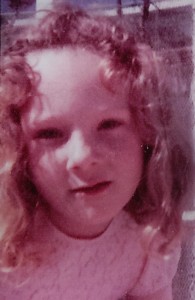 In late childhood we got a built in pool with a deep end of 6 foot and a shallow one of 3 foot. I could swim ten laps of this pool on the bottom. I got dizzy which made me ‘euphoric’ and ‘drunk’ and had no idea I was doing my brain no good by indulging in hypoxic episodes. My father threw in coins and he and my older brother would fetch them and bring them to the surface. Soon I’d do the same. Sometimes he’d put the fish pond fish into the pool and I’d swim with them. Then he’d scoop them back out and return them to the fish pond (my father was very eccentric to say the least).
In late childhood we got a built in pool with a deep end of 6 foot and a shallow one of 3 foot. I could swim ten laps of this pool on the bottom. I got dizzy which made me ‘euphoric’ and ‘drunk’ and had no idea I was doing my brain no good by indulging in hypoxic episodes. My father threw in coins and he and my older brother would fetch them and bring them to the surface. Soon I’d do the same. Sometimes he’d put the fish pond fish into the pool and I’d swim with them. Then he’d scoop them back out and return them to the fish pond (my father was very eccentric to say the least).
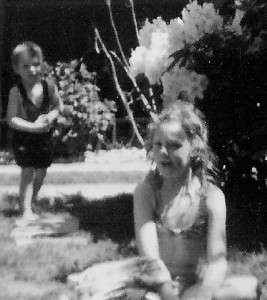 By late childhood I was swimming the 100 metres of the Olympic swimming pool on the bottom like a fish. The teachers were in panic at me, nobody was impressed by these antics and I couldn’t see the fuss. Kids were doing it on the top of the water, why couldn’t I do it on the bottom. Yes, I was dizzy, but unlike the teachers, I didn’t feel distressed by my actions at all. I could hold my breath longer than any other child I knew and wondered if I was perhaps like the cartoon character Marine Boy who could stay fairly indefinitely under water.
By late childhood I was swimming the 100 metres of the Olympic swimming pool on the bottom like a fish. The teachers were in panic at me, nobody was impressed by these antics and I couldn’t see the fuss. Kids were doing it on the top of the water, why couldn’t I do it on the bottom. Yes, I was dizzy, but unlike the teachers, I didn’t feel distressed by my actions at all. I could hold my breath longer than any other child I knew and wondered if I was perhaps like the cartoon character Marine Boy who could stay fairly indefinitely under water.
My younger brother was born when I was 7. When he was only a year old my mother would fling him by the arms into the new built in swimming pool. He’d hit the water with a splash, start sinking, and I’d go fetch him like Tarzan saving Jai. Again and again, and again. But on his own out there he was always in floaties so he wouldn’t drown.
I had dealt with autonomic dysfunction all my life but it was normal for me, I had no contrast. Inability to warm up or to cool down, cold and pale fingers and toes and blue vein ladders up my legs, dizziness much of the time, a muzzy low level ‘headache’, semi-fainting when I stood suddenly or had been standing too long, zoning out, being in a semi-sleep state, chronic constipation and daily laxatives all through childhood, some episodes of being so compacted I vomited bile, difficulty getting food to move down so regurgitating and re-chewing, needing water to get the food to travel, dealing with hiccups or having stodgy food sit part way down was usual so I continued to eat baby food until my 20s, sometimes going the whole day without a pee, other days struggling to hold on and needing to go too much. This was all ‘normal’ in my world.
Regardless, I was a fairly happy kid, fluctuating between intense and defensive, determined and stubborn, silly and manic, happy go lucky and caring. I was echolalic until late childhood, had immune deficiencies, food allergies, food intolerances, selective eating disorder, mood, anxiety and compulsive disorders and was faceblind, severely meaning deaf, saw my meaning blind world in bits, struggled to process a simultaneous sense of self and other or process complex information on more than one sensory channel, but later I would see all this as ‘part of my autism‘. There are certainly enough causes at work in my background to account for my autism, just an acquired hypoventilation syndrome may well be one of those.
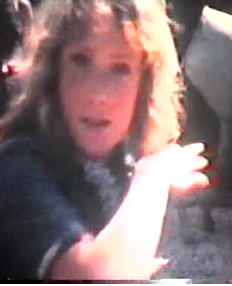 I had functional speech by age 9-11 and once I was fluent enough in my early teens I asked ‘why do other people’s brains keep them breathing and mine keeps forgetting’. People had no idea what I was talking about. I tried several times to tell people “I keep having to remember to keep breathing or sometimes it just stops and I get too dizzy”. Nobody understood or took it seriously. After all I was more than odd and given my ongoing infections, learning and behavior challenges, as well as my parents’ own challenges (they often seemed to have more challenges than me) they probably had bigger fish to fry. After all, if something was seriously wrong with my ability to keep breathing, I’d be dead, right? The thought that, well, maybe not, maybe I’d just be more ‘autistic’ than I might otherwise have been never occurred to them.
I had functional speech by age 9-11 and once I was fluent enough in my early teens I asked ‘why do other people’s brains keep them breathing and mine keeps forgetting’. People had no idea what I was talking about. I tried several times to tell people “I keep having to remember to keep breathing or sometimes it just stops and I get too dizzy”. Nobody understood or took it seriously. After all I was more than odd and given my ongoing infections, learning and behavior challenges, as well as my parents’ own challenges (they often seemed to have more challenges than me) they probably had bigger fish to fry. After all, if something was seriously wrong with my ability to keep breathing, I’d be dead, right? The thought that, well, maybe not, maybe I’d just be more ‘autistic’ than I might otherwise have been never occurred to them.
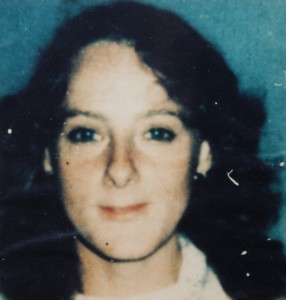 As an adult it was 2009 that I got another long term respiratory infection. This time it was 7 months of Haemophilus ending in 2010 with heavy doses of 800mg Bactrim (all else had failed) and steroids to manage the reactions. Not long afterwards I would wake up and find myself not struggling for air, but simply not breathing and with no urge to breathe. At first I wondered if I had died. It was like suspended animation. It made no sense. We had to breathe in order to live. How could I be laying there not breathing? I consciously made myself breathe, content that it was all working. But after a few of these episodes I wondered if there was a problem. I was having progressive issues with my circulation and trouble with my hands and feet. I wondered if it was all part of the same thing. I casually told the GP whilst discussing other things. He looked at someone slim, small, who didn’t snore, said she was not waking struggling to breathe, so insisted I couldn’t possibly KNOW I wasn’t breathing in my sleep because I was asleep.
As an adult it was 2009 that I got another long term respiratory infection. This time it was 7 months of Haemophilus ending in 2010 with heavy doses of 800mg Bactrim (all else had failed) and steroids to manage the reactions. Not long afterwards I would wake up and find myself not struggling for air, but simply not breathing and with no urge to breathe. At first I wondered if I had died. It was like suspended animation. It made no sense. We had to breathe in order to live. How could I be laying there not breathing? I consciously made myself breathe, content that it was all working. But after a few of these episodes I wondered if there was a problem. I was having progressive issues with my circulation and trouble with my hands and feet. I wondered if it was all part of the same thing. I casually told the GP whilst discussing other things. He looked at someone slim, small, who didn’t snore, said she was not waking struggling to breathe, so insisted I couldn’t possibly KNOW I wasn’t breathing in my sleep because I was asleep.
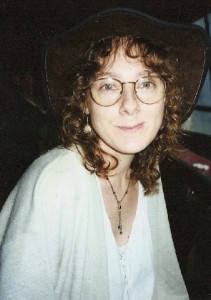 In 2011 I found myself dealing with breast cancer. I had surgery, then chemo, then another surgery.
In 2011 I found myself dealing with breast cancer. I had surgery, then chemo, then another surgery.
During chemo my autonomic function went haywire. The oncologist explained that this was something I’d likely had all my life and that chemo was exacerbating it. I was in the hospital with a temperature of 33 C and the room going ‘white’, I had urinary retention with edema, I had tachycardia and struggled to even get a drink to move down so had to sip one over 1-2 hours, and each chemo round my bowel would stop functioning for 3 days. Worst though was the breathing. As I’d fall asleep it was now clear I was stopping breathing fairly continually. This was not the same as having obstructions. My airway was open but my breathing kept becoming so shallow it would then stop altogether with no struggle or attempt to fight to breathe. I just kept losing the drive, the neurological messages that makes one keep breathing.
We got an SpO2 (blood oxygen) finger pulsemeter and watched my heart rate leap around like crazy and my blood oxygen keep diving. We got one with an alarm that would wake me when I went under 90% oxygen (97-99% is normal) and so we were regularly woken through the night but at least I’d start breathing again.
Out of treatment it was clear there was something now seriously wrong in the breathing department. The daytime somnolence was out of control and I was falling asleep sitting, even standing and going into very shallow intermittent slowed breathing or none at all.
I was referred for a sleep study and diagnosed with moderate-severe Mixed Apnea (largely hypopneas/centrals) and put on an auto CPAP. This helped but the apnea remained difficult to manage and the somnolence during the day remained impossible. I would wake and find the air going into and out of my lungs as if I was like an open bag with a fan blowing in it and the air gushing straight back out of my open mouth. How could these be ‘true’ centrals or I’d have to have a brain tumor, chronic obstructive pulmonary disease, heart failure, MS, sarcoidosis or something pretty ominous? I was tested for Late Onset Congenital Central Hypoventilation Syndrome (LO-CCHS) but do not have the gene mutation for it. Acquired forms of Central Hypoventilation include significant damage to the autonomic nervous system from viral and bacterial infections which may have been particularly more possible in a context of primary immune deficiencies. It can also be caused by damage due to asphyxiation. For that matter it could even be caused by extremely low blood pressure and I have an inherited collagen disorder that has caused low blood pressure and sudden blood pressure fluctuations all my life.
High amounts of salt and citrulline were the most help, probably because they improved messaging of the autonomic nerves and in the case of citrulline increased respiration. By 2013 I was changed over to a VPAP Adapt machine which would now help with both breathing in and breathing out.
Details Most Recent
AHI 1.10
Hours per Night 07:18
Min EPAP 4.00
95% EPAP 8.42
Max IPAP 24.98
95% IPAP 12.98
The clusters of centrals and 90 minute hypopneas disappeared. But still we had no idea why I had this condition.
I had been diagnosed with a collagen disorder, Ehlers Danlos Syndrome type IV (EDSIV), in this process of trying to fathom the dysautonomia. But EDS comes with Obstructive apnea, not Central apnea. Were we missing something?
After moving on to a VPAP ventilation machine and ruling out all other potential causes of this hypoventilation I was tested for Late Onset Congenital Central Hypoventilation Syndrome (LO-CCHS) which has a 42% incidence of developmental delay. I do not have the gene for CCHS.
Acquired forms of Central Hypoventilation (ACHS) presents the same way as LO-CCHS and is only differentiated by the genetic test for CCHS being negative. Unlike the genetically inherited hypoventilation syndrome of CCHS, the acquired form of ACHS is usually the result of brain injury involving significant damage to the autonomic nervous system. In the absence of brain tumor or head injury, other causes include severe viral and bacterial infections which may have been particularly more possible in a context of primary immune deficiencies. However, the other cause of ACHS is asphyxiation – autonomic nervous system damage caused by oxygen deprivation.
“Brainstem infarctions and ischemia can result in central hypoventilation syndromes. Watershed infarcts in the brainstem tegmentum in the human fetal and neonatal brainstem can present with multiple cranial neuropathies, central hypoventilation and apnea….viral encephalitis can also occasionally result in central hypoventilation”. (from http://www.ncbi.nlm.nih.gov/pmc/articles/PMC2885790/ )
Given
a) my mother had twice attempted abortion with Quinine (known to cause nervous system damage in the fetus)
b) that postnatally I was being regularly drugged with gin and Valium (particularly between age 2-3)
c) that I had experienced several non fatal episodes of suffocation and choking at that same age
I have come to accept that I most likely sustained hypoxic damage to my autonomic nervous system from this series of events. This original level of damage would later have been pushed further following a long term respiratory infection, chemotherapy and surgeries to eventually leave me with depressed respiratory drive requiring ventilation to keep breathing during sleep.
I was doing an autism presentation last night. There were 125 people there. I thought to ask them about symptoms of a hypoventilation syndrome and see who related. I cited the usual presentation – autonomic dysfunction, somnolence, altered level of consciousness, early history of drowning without swimming effort, swimming history of swimming great lengths under water or remarkable breath holding, obvious underbreathing or what looks like ‘involuntary breath holding’… 5 hands went up… by the end of the list one parent in particular was very shaken, I had described her child to a T. Many roads ‘lead to Rome’ and a hypoventilation syndrome in someone with autism could be part of Late Onset CCHS, the result of an undiagnosed pediatric stroke (most have normal MRI), encephalitis before the age of 3, or having survived any variety of causes of asphyxiation.
I’m not a doctor… but I told her to get a cheap $30 finger pulsemeter to check SpO2 when the child is sleeping, at rest, or appears out of it… if that’s regularly under 95%, especially if its closer to 90% then I told her to get to the GP and ask for a sleep study… preferably to a sleep-respiratory specialist who has experience with hypoventilation syndromes. Acquired hypoventilation syndromes may be more common among those with autism and start getting these people the correct medical interventions for this part of their ‘autism’.
Donna Williams, BA Hons, Dip Ed.
Author, artist, singer-songwriter, screenwriter.
Autism consultant and public speaker.
http://www.donnawilliams.net
I acknowledge Aboriginal and Torres Strait Islander people as the Traditional Owners of this country throughout Australia, and their connection to land and community.
